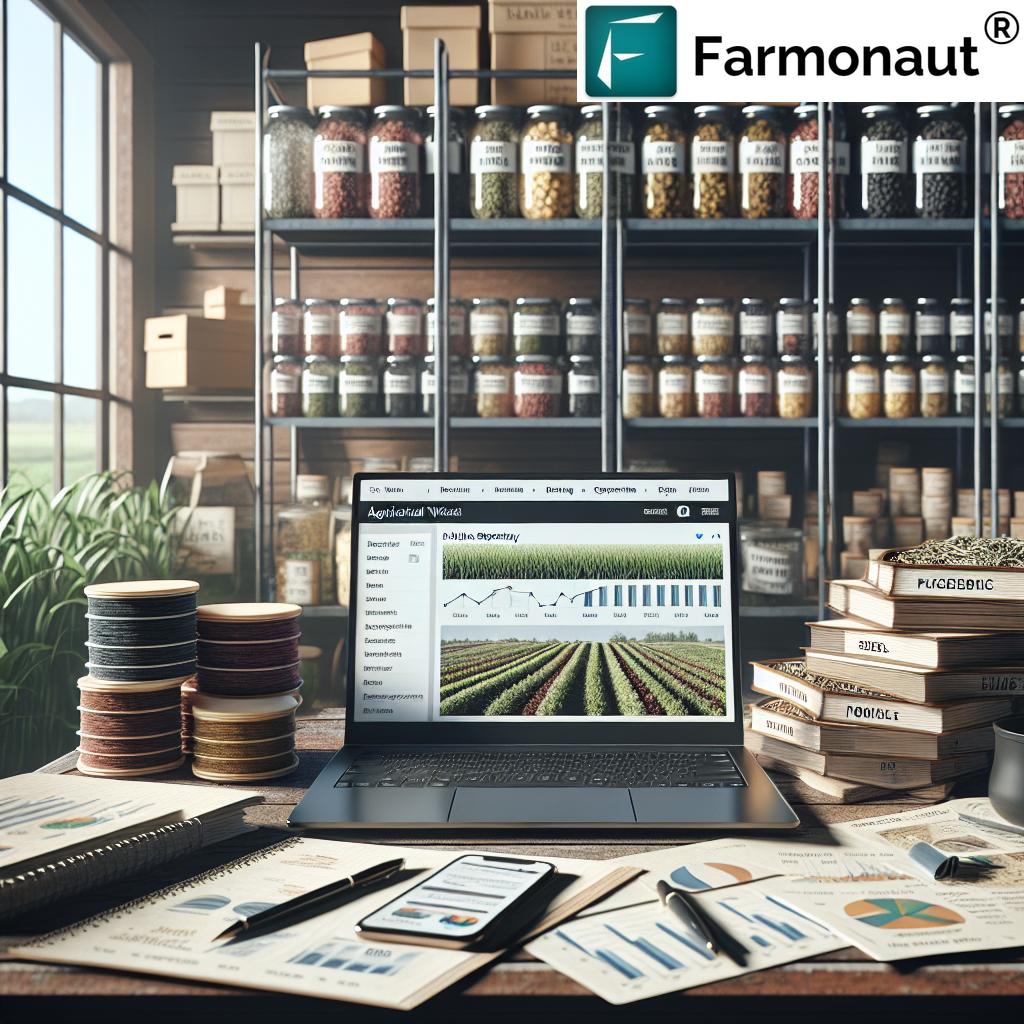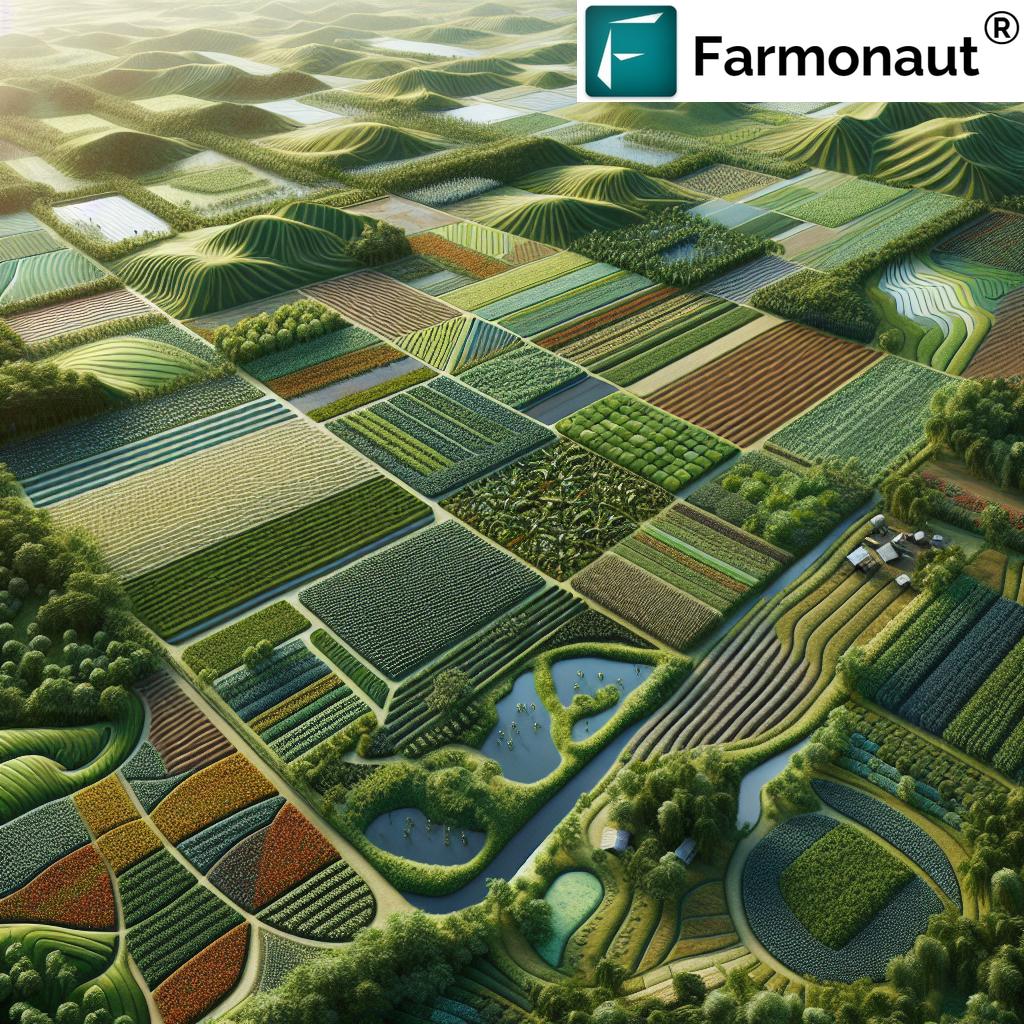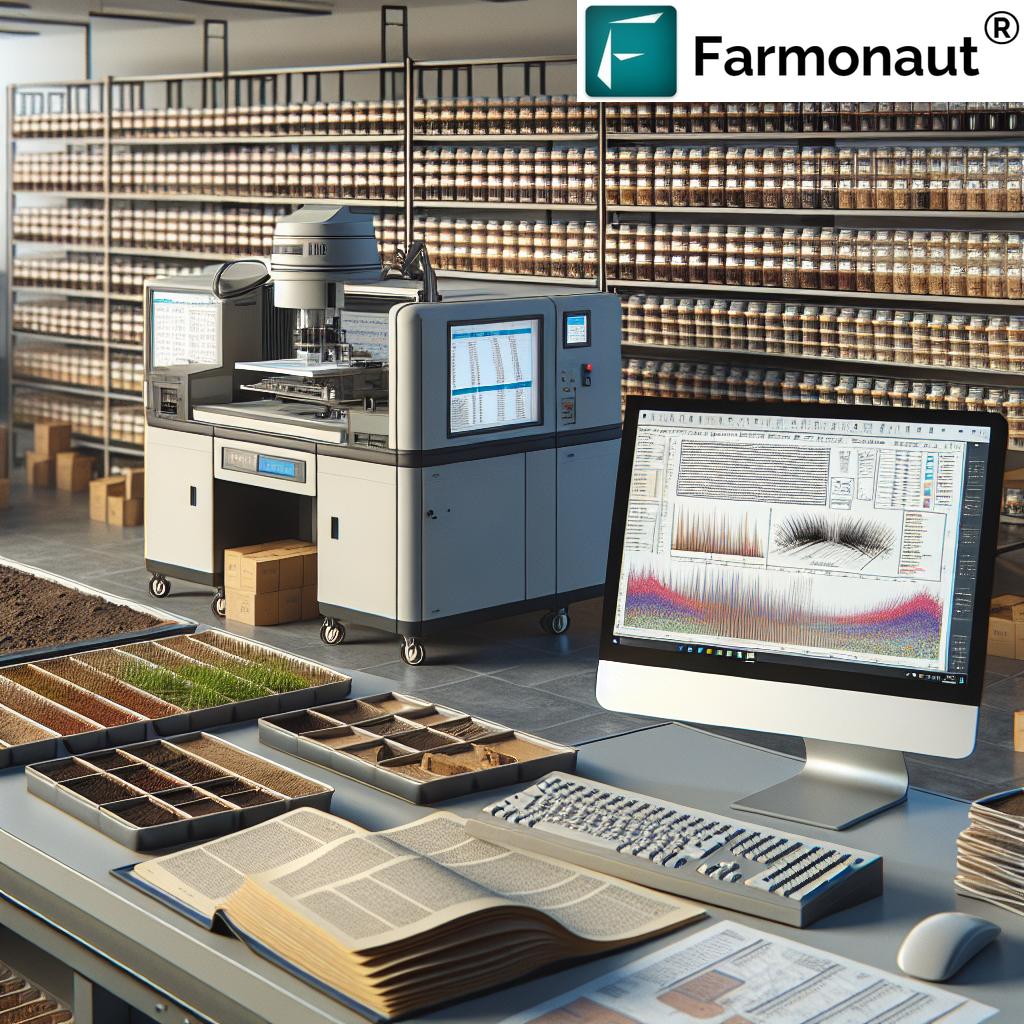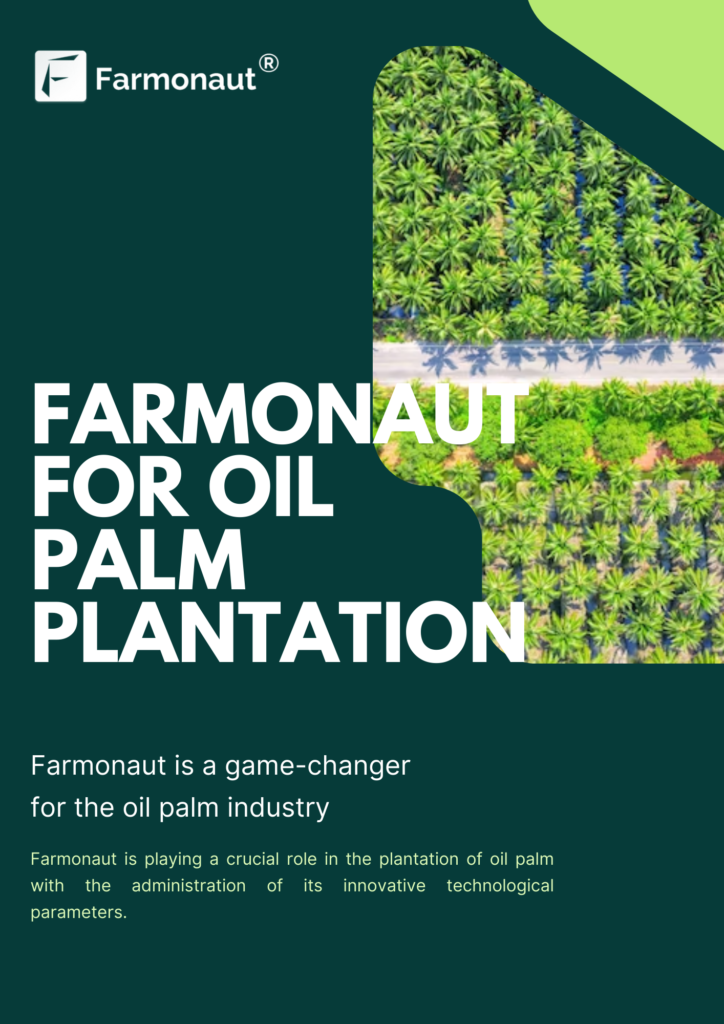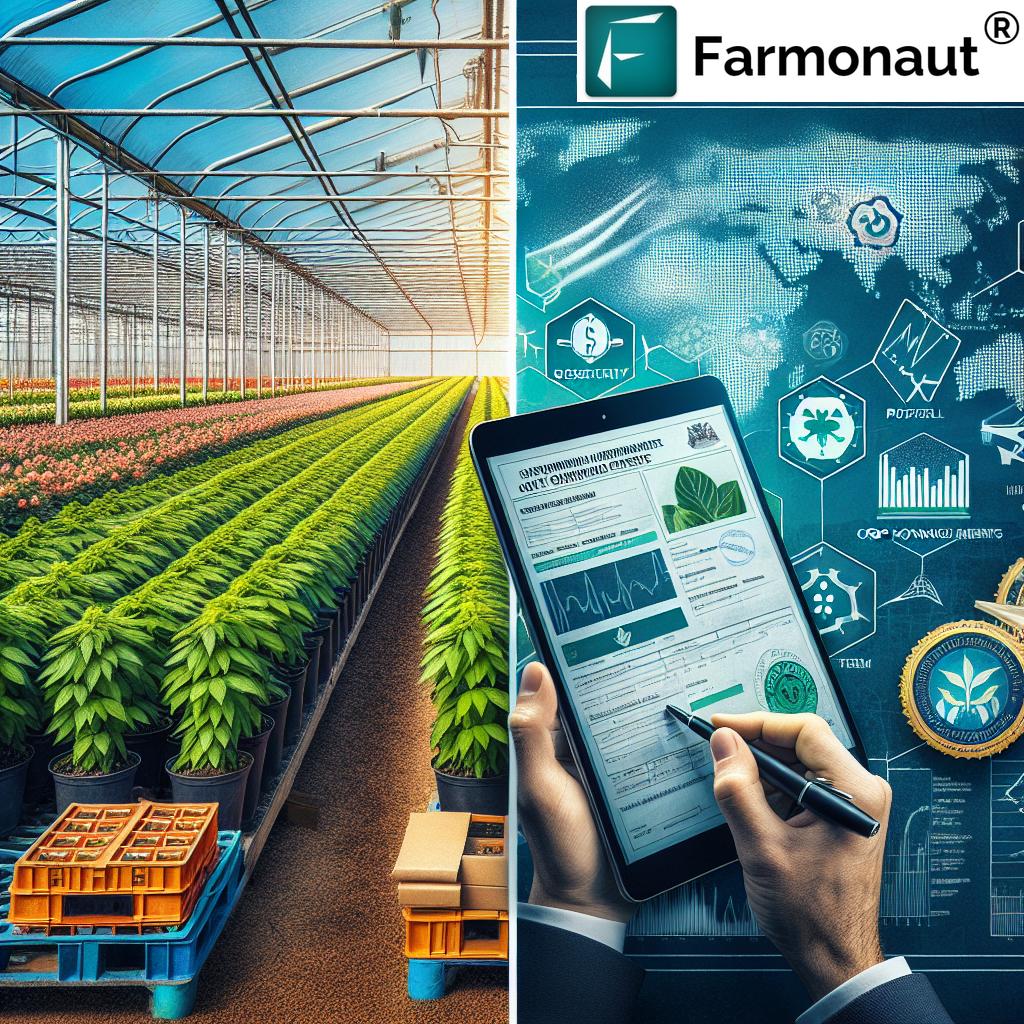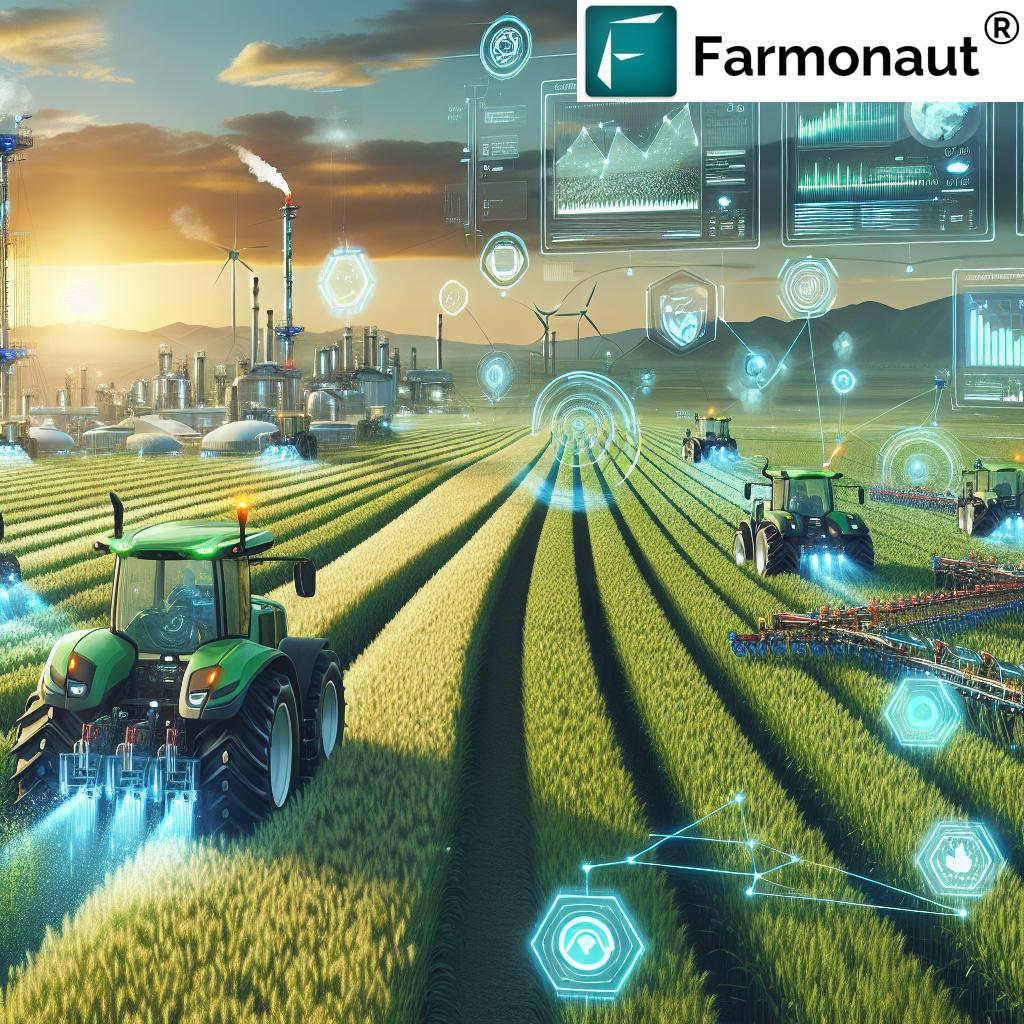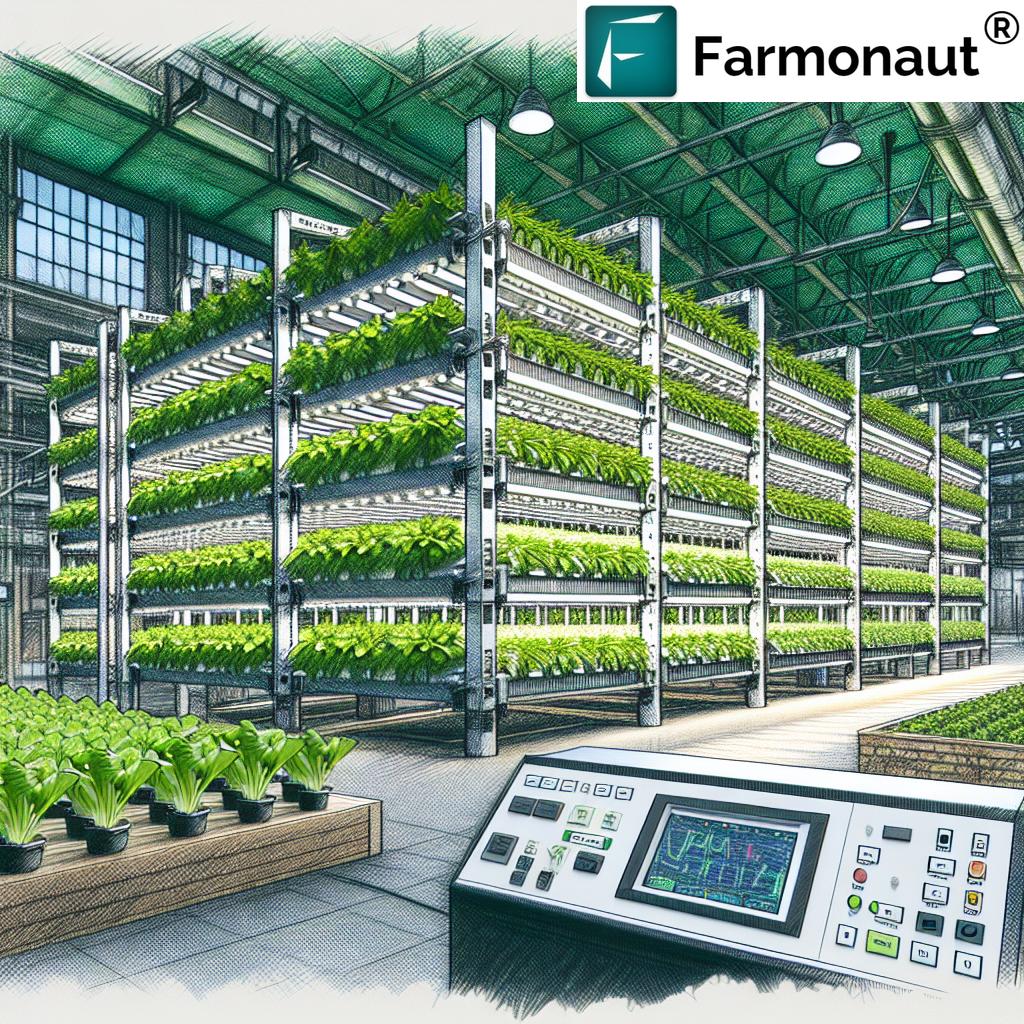Table of Contents
- Introduction: Revolutionizing Agriculture with Digital Marketing
- Why Digital Marketing is Essential for Agriculture in 2024
- Agriculture Digital Marketing: 10 Hacks You Need Now!
- Comparison Table: Top 10 Agriculture Digital Marketing Hacks & Impact
- Farmonaut’s Role: Empowering Precision and Sustainable Agriculture
- The Future of Digital Marketing in Agriculture
- Challenges: Overcoming Barriers to Digital Success in Agriculture
- Farmonaut Subscription Options
- FAQs About Digital Marketing for Agriculture
- Conclusion
“Over 70% of agri-businesses increased online visibility using SEO and social media in 2023.”
Agriculture Digital Marketing: 10 Hacks You Need Now!
In today’s rapidly evolving farming sector, digital marketing in agriculture is no longer a novelty—it’s a necessity. As the world’s food systems transform and connectivity deepens, traditional methods alone cannot deliver the visibility, sales, and growth that modern agricultural operations demand. Farmers, agribusinesses, and forestry operations are adopting innovative agricultural marketing strategies to reach their audience, improve engagement, and optimize every stage from production to the market.
In this comprehensive guide, we’ll dive deep into the world of digital marketing for agriculture, unlocking the top 10 hacks you can implement now to achieve new levels of brand visibility, consumer engagement, and business success. Whether you’re part of a local farm, a global agribusiness, or anywhere in between, these actionable strategies will help you connect, share, and thrive in the digital age.
Why Digital Marketing is Essential for Agriculture in 2024
Digital platforms have fundamentally reshaped how agricultural businesses connect with consumers and promote their products.
Here’s why digital marketing in agriculture is more relevant now than ever before:
- Consumer Preferences Are Changing: Modern consumers and B2B stakeholders seek convenience, transparent sourcing, and digitally accessible information about agricultural products.
- Greater Reach, Lower Cost: Compared to traditional media, digital platforms enable farmers and agribusinesses to reach wider, more targeted audiences at a fraction of the cost.
- Increased Competition: With more agri-brands online, standing out requires advanced marketing strategies across SEO, content, and social media.
- Valuable Analytics: Online campaigns generate actionable data, helping businesses refine their approach and boost conversion rates.
Digital solutions empower us to optimize campaigns, showcase our expertise, and build strong community bonds—whether selling seeds, hybrid crops, or advanced agri-technology.
Agriculture Digital Marketing: 10 Hacks You Need Now!
Ready to level up your digital presence? Here are the top 10 agriculture digital marketing hacks driving growth and online visibility in the sector today:
“Content marketing drives 3x more leads for agriculture brands compared to traditional advertising methods.”
1. Social Media Marketing for Farmers: Build Agricultural Communities Online
With billions of daily active users, social media platforms like Facebook, Instagram, LinkedIn, and YouTube have become the hub for agricultural marketing strategies. For farmers and agribusinesses, leveraging these networks means real-time engagement, instant updates, and massive reach.
- Publish farm updates, educational videos, and success stories to connect emotionally with your audience.
- Host interactive posts: Use polls, Q&A sessions, and contests to foster participation and boost engagement.
- Segment platforms effectively: Use LinkedIn for B2B networking, Instagram and Facebook for direct consumer engagement, and YouTube for video content and tutorials.
- Run targeted ads: For example, a seed company can use Facebook Ads to showcase hybrid crops to relevant users, directly boosting sales.
For tools that simplify and automate social media scheduling and analytics, platforms like Buffer, Hootsuite, and Meta Business Suite are highly effective.
2. SEO for Agricultural Businesses: Optimize for Search Engines
Search Engine Optimization (SEO) is the backbone of any effective digital marketing strategy. By optimizing your website content with relevant keywords—think digital marketing in agriculture, farm management, satellite crop monitoring—you improve your visibility in Google and other search engines.
- Website Optimization: Ensure your site is mobile-responsive, loads fast, and includes comprehensive, valuable information about your products and services.
- Keyword Strategy: Research and incorporate terms that your audience is searching for, such as “precision agriculture tools“, “crop health monitoring“, or “farm management apps“.
- On-page SEO: Use keywords naturally in titles, subheadings, meta descriptions, and alt attributes of images for maximum impact.
Regularly publishing authoritative content positions you as an industry expert and attracts organic traffic to your website.
You can deepen your SEO approach with advanced analytics platforms such as Google Search Console, SEMrush, and Ahrefs to monitor traffic and search performance.
3. Content Marketing for Agribusiness: Share Rich, Educational Value
Content marketing in the agriculture sector means providing valuable information that educates, empowers, and inspires your audience. Instead of overtly pushing products, we focus on solving problems, offering insights, and sharing relevant agricultural knowledge.
- Produce blog posts, how-to guides, infographics on modern farming techniques, sustainability, and product benefits.
- Showcase behind-the-scenes videos: For example, a farm can demonstrate sustainable agriculture marketing practices for transparency and trust.
- Curate timely updates: Share industry trends, weather impacts, or breakthroughs in agri-tech to keep your audience informed.
- Integrate calls-to-action (CTAs): Guide users toward your services, subscriptions, or a farm management app.
Great content enhances engagement, builds credibility, and attracts links from authoritative websites, further boosting your search engine optimization efforts.
A robust content strategy may include email newsletters, educational series, or downloadable resources tailored for farmers’ digital platforms.
4. Email Marketing: Nurture and Personalize Relationships
Despite the buzz around newer platforms, email marketing continues to deliver high conversion rates for agriculture businesses. Well-crafted email campaigns are invaluable for building long-lasting customer relationships and keeping your brand top-of-mind.
- Segment your lists by roles (growers, distributors, retailers), location, or interests for personalized content and offers.
- Share regular newsletters: Include updates, educational content, product promotions, and market trends.
- Automate drip campaigns: Welcome new subscribers or re-engage inactive contacts with relevant resources and exclusive deals.
- Track analytics: Tools like Mailchimp or Sendinblue help us monitor open rates, clicks, and subscriber engagement.
Effective email marketing reinforces community, drives repeat business, and highlights new products or agriculture e-commerce solutions.
5. Pay-Per-Click (PPC) Advertising: Achieve Instant Online Visibility
While SEO is a long-term investment, PPC advertising delivers fast results by placing your ads in front of motivated users searching for agricultural products and services. Google Ads and social media ad platforms let us target precise demographics, interests, and locations.
- Focus on conversion-driven keywords: Choose terms with high purchase intent such as “buy organic fertilizer online” or “farm management software demo”.
- Leverage retargeting: Remind visitors who viewed your products but didn’t purchase, converting interest into sales.
- Customize campaign objectives: Prioritize website visits, leads, or sales based on your business goals.
PPC’s advantage lies in highly measurable ROI—allowing you to scale what works and fine-tune your agricultural marketing strategies for better results.
6. Influencer Marketing in Agriculture: Amplify Trust and Authority
Partnering with influencers with established audiences in agriculture can drive brand awareness, build credibility, and generate authentic word-of-mouth buzz. Influencer marketing in agriculture includes social media takeovers, product reviews, tutorials, and even on-field demo sessions.
- Identify relevant influencers—experts, agri-tech enthusiasts, or leading farmers—in your sector.
- Collaborate to showcase product benefits or kickstart discussions on topics like sustainability and agri-innovation.
- Host live webinars or Q&A sessions to answer community questions and demonstrate real-world impact.
- Use influencer content in your own marketing campaigns and ads to reach wider audiences.
This approach is particularly effective on Instagram, YouTube, and LinkedIn. By aligning with thought leaders, we reinforce our expertise and deepen engagement within the agriculture sector.
7. E-commerce & Online Sales: Promote Agricultural Products Online
A robust digital storefront is no longer optional—it’s essential. By developing an e-commerce-enabled website or using marketplaces, agribusinesses and farmers can sell products directly to consumers or retailers, track performance, and expand reach.
- Choose a platform: Shopify, WooCommerce, or even Etsy for selling unique farm produce or agri-products.
- Present detailed product pages: Use high-quality images, clear pricing, and rich descriptions to enhance trust and drive conversions.
- Promote online exclusives: Offer limited-time discounts or bundles to incentivize first-time purchases and repeat business.
Integrating an agriculture e-commerce solution empowers you to more easily manage inventory, streamline payments, and market effectively online—no matter your location.
8. Video Marketing: Showcase, Demonstrate, and Engage
Video content is one of the most engaging digital assets for the agro-sector. Through videos, we can show real operations, product demonstrations, customer testimonials, or highlight unique farming practices.
- Host virtual farm tours: Offer behind-the-scenes insight to consumers and partners, highlighting sustainable and transparent operations.
- Produce product tutorials or explainers: Demonstrate proper seed planting, use of agri-drones, or latest irrigation solutions.
- Include customer testimonials: Show actual users benefiting from your products or digital services.
Post these videos on YouTube, Facebook, and your own website to expand organic reach and boost engagement.
9. Mobile Marketing: Optimize for the Smartphone Generation
A growing number of farmers, agribusinesses, and consumers interact with agri-content on their mobile devices. All digital marketing efforts—from website to email to ads—should be mobile-friendly.
Here’s what we can do:
- Mobile-Responsive Website: Ensure every part of your digital presence (including maps, product listings, and contact forms) displays beautifully on phones and tablets.
- Leverage SMS campaigns: Use text messages to share timely updates, seasonal promotions, or market alerts—especially effective for driving local traffic.
- Mobile Apps: Develop or utilize apps such as the Farmonaut platform to offer users easy access to precision farming insights and farm management features.
For seamless mobile integration, assess user experience frequently and use feedback to continually enhance mobile features.
To explore the Farmonaut App—equipped with real-time crop monitoring, AI-driven advisory, and blockchain traceability—visit:
Farmonaut Mobile App
10. Community Engagement: Strengthen Local and Online Bonds
Lasting success in digital agricultural marketing is about more than technology—it’s about building relationships. Community engagement both online (via forums and groups) and locally (through events and initiatives) fosters loyalty, information exchange, and genuine support.
- Join farming Facebook groups, WhatsApp networks, and agri-forums: Share advice, ask questions, and support fellow producers.
- Host or participate in local events: Organize virtual farm tours, community Q&A sessions, or regional market showcases.
- Promote sustainability and transparency: Share progress on climate initiatives, certifications, and responsible production.
Remember, the strongest agricultural brands are those that connect authentically with their audience, respond to feedback, and actively participate in sector conversations.
Comparison Table of Top 10 Agriculture Digital Marketing Hacks & Estimated Impact
| Hack/Strategy Name | Description | Estimated Visibility/Engagement Increase (%) | Recommended Tools/Platforms |
|---|---|---|---|
| Social Media Marketing | Engage consumers and build community with interactive posts, visuals, and real-time farm updates. | +41% (engagement) | Facebook, Instagram, LinkedIn, YouTube, Buffer, Hootsuite |
| SEO Optimization | Enhance website content with keywords to attract organic traffic from search engines. | +30% (visibility) | Yoast SEO, SEMrush, Google Search Console |
| Content Marketing | Create educational blogs, videos, and infographics to inform and inspire your audience. | +54% (lead generation) | WordPress, Canva, Mailchimp, Farmonaut Platform |
| Email Marketing | Send personalized updates, newsletters and offers to connect directly with customers. | +27% (customer retention) | Mailchimp, Sendinblue |
| PPC Advertising | Run targeted ads on Google and social for immediate results and measurable conversion. | +36% (traffic boost) | Google Ads, Facebook Ads |
| Influencer Marketing | Partner with agri influencers for genuine endorsements and community building. | +23% (brand trust) | Instagram, YouTube, LinkedIn |
| E-commerce & Online Sales | Set up an online store to expand sales channels and simplify transactions. | +29% (sales conversion) | Shopify, WooCommerce, Etsy |
| Video Marketing | Use videos to educate, demonstrate and tell your farm’s story. | +45% (engagement) | YouTube, Facebook, Instagram Reels |
| Mobile Marketing | Optimize for smartphone users; utilize SMS and app notifications for timely updates. | +37% (accessibility) | Farmonaut App, SMS Platforms |
| Community Engagement | Participate in forums and events to build relationships and loyal local and global communities. | +19% (brand loyalty) | Facebook Groups, WhatsApp, Local Events |
Farmonaut’s Role in Agricultural Digital Marketing and Precision Farming
At the intersection of digital marketing in agriculture and precision farming, Farmonaut stands out by providing cutting-edge technologies and tools that empower every stakeholder—farmers, agribusinesses, government institutions, and corporate clients alike.
What Makes Farmonaut Unique in the Digital Agriculture Sector?
-
Satellite-Based Crop Health Monitoring: Farmonaut uses multispectral satellite imagery to provide actionable insights into vegetation health (like NDVI), soil moisture, and resource optimization. These data enrich the content that businesses can share with their audience, enhancing transparency and credibility.
Farmonaut Carbon Footprinting: Monitor and reduce the environmental impact of farming operations by tracking real-time emissions and aligning marketing with sustainability initiatives—a key selling point in sustainable agriculture marketing.
- Jeevn AI Advisory System: With personalized AI-driven advice on crop health, irrigation, and weather, Farmonaut enables farmers to make optimal decisions. Sharing this data via digital channels highlights an organization’s commitment to modern, data-driven agriculture.
-
Blockchain-Based Traceability: Today’s consumers demand proof of origin and ethical sourcing. Farmonaut’s blockchain solutions provide full traceability for agricultural products, a powerful trust-builder in any agricultural marketing strategy.
Farmonaut Product Traceability: Link traceability certifications and data to your marketing materials to establish confidence with both B2B and end customers. -
Fleet and Resource Management Tools: Farmonaut offers advanced dashboards to manage equipment and vehicles across large farm operations.
Fleet Management: Streamline logistical workflows and highlight efficiency in your brand messaging. -
APIs for Developer Integration: Want to incorporate farm data into your own agri-app or platform? Farmonaut’s API access provides robust, real-time satellite and weather data available for custom digital solutions.
Farmonaut Satellite & Weather Data API |
Farmonaut API Developer Docs -
Large Scale, Scalable Solutions: Whether you’re a single farmer or a large cooperative, Farmonaut’s modular subscription model grows alongside your digital marketing needs.
Visit Farmonaut Large Scale Farm Management App to explore features that power commercial and multi-farm management efficiently. -
Crop Loan & Insurance Verification: By enabling satellite-based verification, Farmonaut helps both farmers and financial institutions minimize fraud and streamline required documentation.
Discover more at Farmonaut Crop Loan & Insurance Services
By integrating Farmonaut’s advanced technologies with your digital marketing efforts, you enhance not only operational efficiency but also your brand promise, transparency, and market appeal.
The Future of Digital Marketing in Agriculture: Emerging Trends
Agricultural digital marketing is evolving at a breathtaking pace. The next wave of innovation offers even more exciting opportunities for stakeholders aiming to enhance their reach, build community, and demonstrate credibility:
-
Artificial Intelligence (AI): AI algorithms help predict emerging customer needs, automate campaign personalization, and deliver insights that increase conversion
Farmonaut’s Jeevn AI exemplifies how sophisticated, AI-powered farm advice can be a core pillar of content marketing for agribusiness. -
Blockchain Marketing: Blockchain provides immutable, transparent records for product traceability. In marketing, this feature assures customers of authenticity, origin, and ethical practices.
See more on Farmonaut Product Traceability. - Voice Search Optimization: With the advent of voice assistants (Amazon Alexa, Google Assistant), optimizing digital content for natural language search is essential.
- Sustainability Messaging: The new generation of consumers weigh sustainability as a decisive buying factor. Demonstrate your carbon tracking and eco-conscious operations via features like Farmonaut Carbon Footprinting in your digital outreach.
These innovations promise richer data for marketers, more engaging user experiences, and deeper community connections around responsible farming and food production.
Challenges: Overcoming Barriers to Digital Success in Agriculture
Despite the vast promise of digital marketing in agriculture, real-world challenges remain. Understanding these hurdles helps us build more resilient and effective strategies:
- Connectivity Issues: Limited or unreliable rural internet access can constrain participation. Government and private initiatives are crucial to expanding high-speed coverage to agricultural communities.
- Digital Literacy: Farmers and some small businesses may face a learning curve with new digital tools. Continuous educational efforts and support are essential.
- Cost Constraints: Allocating resources for digital marketing, particularly for small-scale farmers, can be daunting. Affordable tools, subsidies, and modular pricing models (as offered by Farmonaut) are helping to bridge this gap.
As stakeholders, it’s our responsibility to promote inclusive solutions and ensure that all players in the agricultural sector benefit from the digital transformation.
Farmonaut Subscription Options
Farmonaut offers flexible subscriptions for individuals, agribusinesses, and large institutions. Pricing scales based on hectares monitored and data frequency, making advanced farm monitoring and management accessible to all.
Upgrade your digital agility and market competitiveness by selecting a package that fits your farm or business operation:
FAQs About Digital Marketing for Agriculture
What is digital marketing in agriculture?
Digital marketing in agriculture refers to the use of online platforms and tools—including social media, search engines, content, video, email, and e-commerce—to promote agricultural products, services, and information, connecting producers with consumers, businesses, and other stakeholders.
Why is SEO important for agricultural businesses?
SEO for agricultural businesses ensures your website and digital content appear in relevant search results when potential customers look for products, information, or services related to agriculture. It drives organic traffic, increases visibility, and supports long-term growth.
How can social media help farmers reach consumers?
Social media marketing for farmers provides direct communication with consumers, enabling them to showcase products, share expertise, announce events, and build trust through transparent, frequent updates.
Which digital marketing strategy is best for small farms?
For small farms, combining social media marketing, content blogging, and local community engagement often yields the best results. These approaches are cost-effective and build a loyal, supportive customer base.
How does Farmonaut support digital transformation in agriculture?
Farmonaut empowers farmers and agribusinesses with affordable, advanced technologies for real-time crop monitoring, AI-based advisory, blockchain traceability, and resource management—all designed to bolster digital marketing efforts through data-driven insights and transparency.
What are the main challenges to implementing digital marketing in agriculture?
Connectivity limitations, varying levels of digital literacy, and cost concerns remain key barriers. However, educational support, government initiatives, and scalable solutions like Farmonaut are steadily overcoming these challenges.
Which Farmonaut services enhance my digital marketing content?
Services including carbon footprint tracking, blockchain product traceability, and fleet management can be referenced in your digital content to build authority, engage eco-conscious customers, and demonstrate operational excellence.
Conclusion: Harnessing the Power of Digital Marketing in Agriculture
The digital revolution is reshaping every aspect of our agricultural operations—from product development to brand engagement and market expansion. By embracing innovative agricultural marketing strategies—including social media engagement, SEO optimization, content marketing, video, and more—we create new opportunities to connect, educate, and build mutually beneficial relationships with consumers and B2B customers.
Tools and platforms like Farmonaut provide actionable technology to amplify our marketing, improve operational efficiency, and drive sustainable agriculture for the future. No matter your role—farmer, business owner, or agri-technology leader—the time to act is now. Leverage these 10 digital marketing hacks, embrace innovation, and future-proof your place in the global agricultural community.


